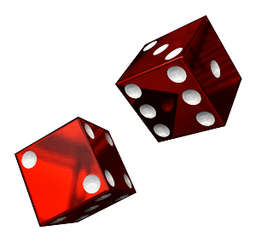Gambling: How to tell if you’ve gone too far
 Q: It’s fun to go to the casino with friends on occasion, but one friend seems obsessed about winning and is always there. She’s not interested in anything else. Does she have a problem?
Q: It’s fun to go to the casino with friends on occasion, but one friend seems obsessed about winning and is always there. She’s not interested in anything else. Does she have a problem?
A: Gambling has never been more popular than in today’s culture. Poker games are broadcast on sports networks.
Many people consider gambling to be just another hobby, like golf or photography. It is considered totally acceptable to buy the odd lottery ticket, spend a weekend in Vegas or wager on the outcome of a hockey tournament.
But when does gambling stop being “just for fun?”
It stops being fun when:
- It turns from a casual activity to an obsession, consuming every thought;
- It becomes only about winning and less about the entire experience (e. g. the food, the friends and the game);
- You lose contact with your family and friends;
- You experience financial hardship (e. g. get into debt, can’t pay back loans, hide losses from your spouse or family);
- You skip time with family or friends in favour of gambling;
- You’re distracted at work because you’re thinking about the next game;
- You’re “chasing the next win” so that you can pay your debts.
People find enjoyment in gaming when they:
- Expect to lose. Casinos are an extremely profitable business and that’s because the house wins more often than you do!
- Set limits before placing any bets. Decide how long you’ll be there and how much you can afford to lose.
- Keep engaged in other social and recreational activities—gaming is just one of many enjoyable pastimes.
When gambling stops being fun, seek help from a community resource or counselling program. Dealing with the addiction first will make it easier to resolve the associated financial challenges.
Gambling should be like spending money at the movies—you hope to see a good show, but in the end, you’ve been entertained.
Related Topic: Is Winning the Lottery Part of Your Financial Plan?



0 Comments